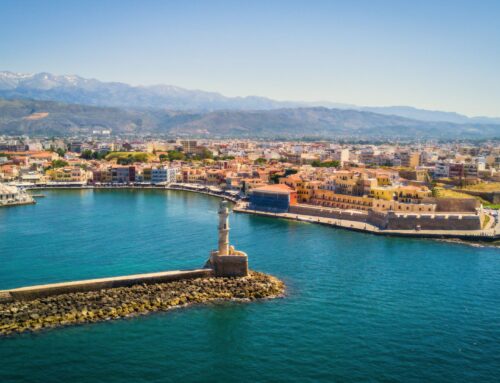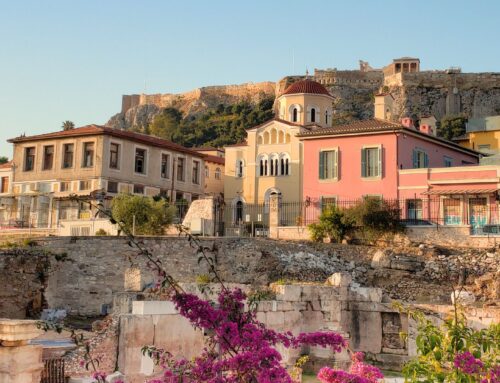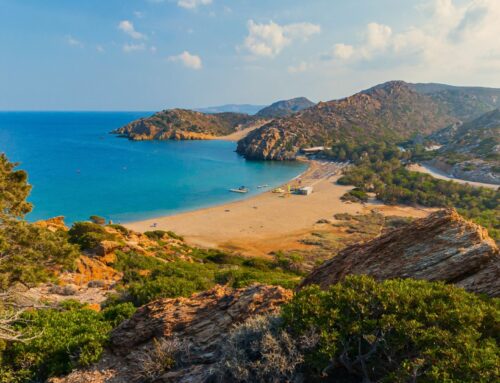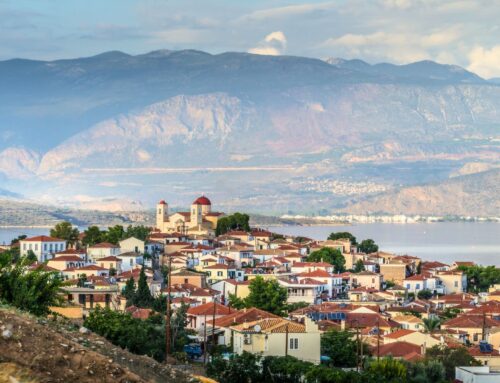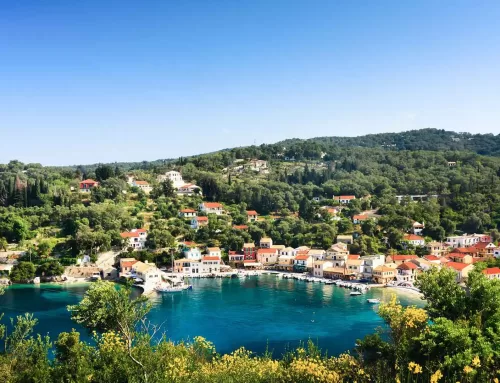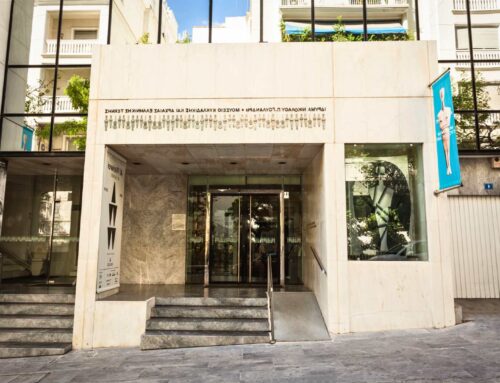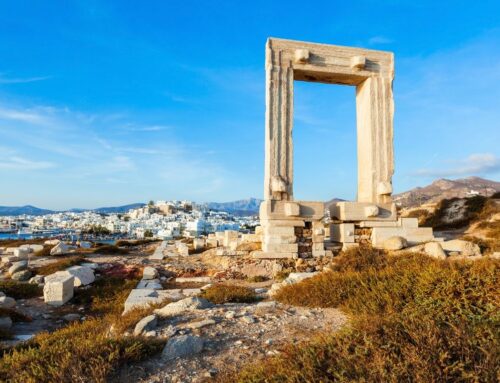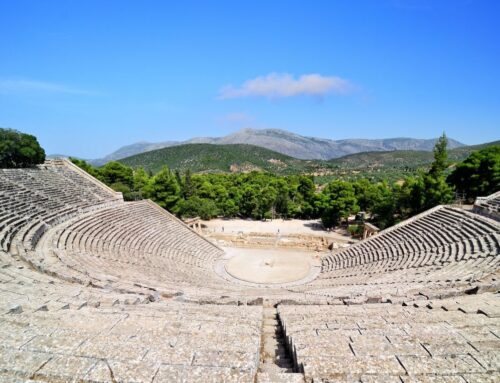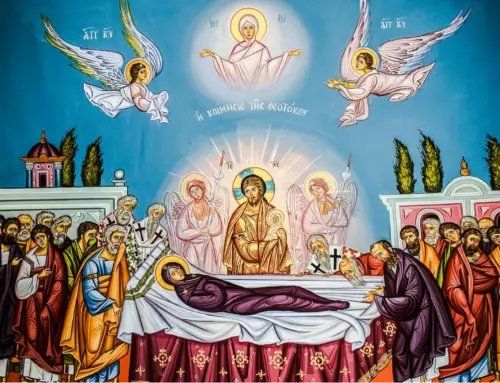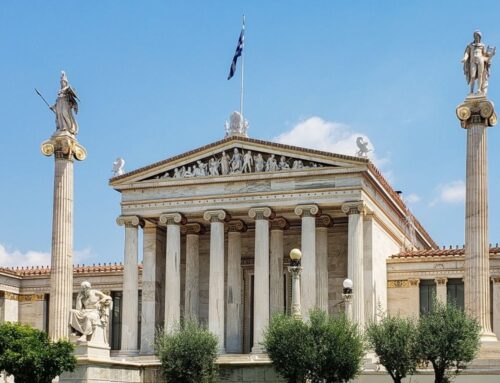Name Days in Greece – What Are They and How They Are Celebrated
Name Days in Greece – What Are They and How They Are Celebrated
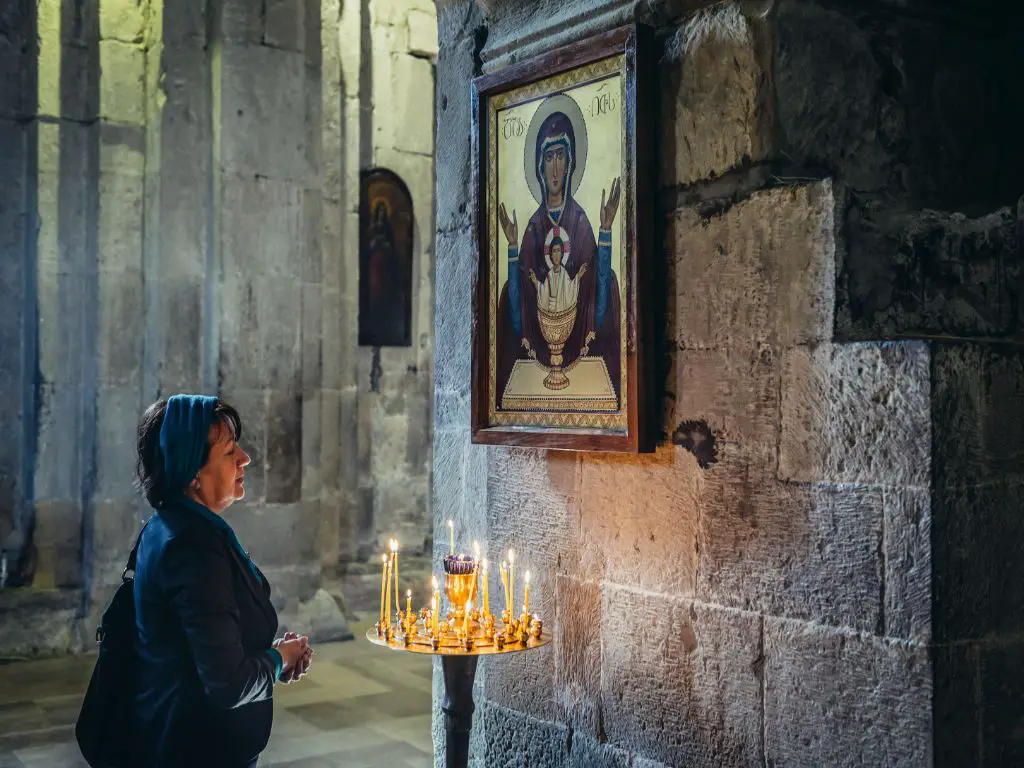
☞ Table of Contents:
Name days are a religious celebration, common across many of the Christian European countries.
The Greek Orthodox church follows the “eortologio” or calendar of saints, which associates each day of the liturgical year with a specific saint. There are differences and variations between the calendars of different Christian churches and not all names are included in all calendars or recognized by all churches. In English, the day a saint is celebrated is commonly referred to as “a feast day”. The first saints of the church were martyrs, or those that had shown their love and devotion to Christ till death. As a result, most saint days are still set for the day of death and the return to heaven.
Your name day is the day the saint you were named for is celebrated by the church.
Eastern European countries, Greece amongst them, have a very high percentage of Orthodox Christians and most define their identity through their religion. A current estimate puts the percentage of Greek Orthodox Christians at 90%, slightly lower than Moldova (92%), Georgia (89%), Armenia (89%) and Romania (86%). (source)
That means a large percentage of Greeks are baptized into the Greek church at a young age, carry the name of saint and celebrate their name days. So, if you are planning a trip to Greece or have any Greek friends this is a tradition you will definitely come across.
Now, what about birthdays?
Why are birthdays not celebrated?
Your birthday is by design the day you were born. From an Orthodox Christian standpoint, that day is not considered important as it marks the arrival onto earth and the fall from heaven. Similarly, from a religious point of view, marking the day of your birth as an important milestone can be seen as egocentric.
The birthday serves a purpose for matters of the law and government identification.
If you were to ask the grandparents or older people in Greece, they might not even be able to give you an exact day for when they were born.
The date on their birth certificate and legal documents will be an estimate, a day their parents thought was close enough to the real one. They remember that day by other important milestones, like the vine harvest in the village, the first snow, or the name day of another saint.
Nowadays of course, almost everyone knows their true birth day, even if some choose to not celebrate it.
The church does not consider wishing someone happy birthday as a sin, however, they actively discourage celebrations, parties or festivities to mark the day.
How do people celebrate name days in Greece?
Traditionally and religiously, name days are about honoring the saint whose name you carry.
Your name is your religious identity, which is why someone can only be baptized if they choose a Christian name and why people that convert into the church may need to pick a new one.
When a saint is honored at church the prayers and blessings include everyone else that is a carrier of that name.
In previous years, people were expected to spend their name day in church. That would start the evening before your name day begins during vespers.
The religious connection to the saint whose name you carry should also be seen within your home. Many Greek homes are expected to have a small corner called “iconostasi” where a few icons are displayed. The icons need to first have been blessed in a church and there is also an oil-burning candle that needs to be lit at all times. The holy icon of the saint whose name you carry should also be displayed within your home.
In addition to church duties, people would hold “an open home”. That is an open invitation for anyone to come by the house and wish them well. The celebrant would provide drinks and treats for the guests. That is a common practice for all celebrations in Greece even now. So do not be surprised if a Greek friend buys your drinks when its his birthday.
Nowadays, close friends and family may have small gatherings at home to celebrate but you should call ahead if you would like to pay someone a visit. What is more common are texts and phone calls.
That may seem like an easy task, but on some popular name days, half of Greece is celebrating and you need to call every George you know!
The customary wish, is “chronia polla” which literally translates to “have many years”.
Because it is quite a broad wish, it can be used for many other things like birthdays or when we celebrate the New Year. No truly, it is a magical phrase that cannot be matched in another language.
For that reason, you may need something a bit more specific.
“Xronia (chronia) polla yia tin yiorti sou”
“Xronia polla na hairesai to onoma sou”
Something else that Greeks do differently when it comes to name days is that they congratulate the family or friends as well as the person. So, if your friend Nick is celebrating his name day, you would call him as well as his mother, father, sisters and wive, if you know them that is.
There is no one phrase that fits all for this. It depends on whether you are using a formal or indirect pronoun or if you are taking to multiple people at once. It also depends on whether the person that is celebrating uses “she” or “he”. Confused?
How to congratulate other people on someone’s name day
“Na ton hereste” (xerese) – Talking about your friend Nick, to his parents (formal) or to the whole family (plural)
“Na tin hereste” – Talking about your friend Nicoletta, to his parents (formal) or to the whole family (plural)
“Na ton herese” – Talking about your friend Nick, to a friend or someone you know very well
“Na tin herese” – Talking about your friend Nicoletta, to a friend or someone you know very well.
- More about the Greek Alphabet here
Most name days are fixed, however, there are some that “float”. Floating name days are usually due to Easter celebrations that change each year because they are tied to the moon.
The most popular floating name days are George and Georgia, Zoi, Theodore and Theodora, Thomas and Lazaros.
There are also name days that are celebrated on multiple occasions. The most well known are the names associated with the Virgin Mary, like Maria, Mary, Despoina and Panagiota.
*Disclaimer: This page might include affiliate links. If you decide to book something through one of them, I might get a little bonus, but it won't cost you anything extra.*







